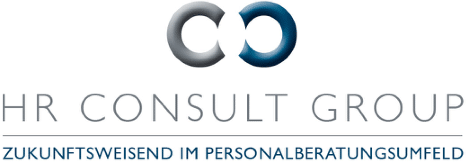Verspätete oder gar keine Rückmeldungen, zu kompliziertes Bewerbungsverfahren oder zu hohe Anforderungen der Personalabteilungen – Fehler in den innerbetrieblichen Abläufen erschweren häufig die schnelle Besetzung offener Stellen. Die Probleme sind bekannt, werden aber zu selten aktiv behandelt.
Angesichts des Fachkräftemangels, der für manche Berufsgruppen teilweise schon erhebliche Ausmaße annimmt, sollte man eigentlich vermuten können, dass die Unternehmen alle Hebel in Bewegung setzen würden, um erfolgskritische Stellen so schnell wie möglich besetzen zu können. Doch das Wort eigentlich ist in vielen Fällen auch der Schlüsselbegriff, der das Scheitern der Bemühungen beschreibt. „Eigentlich müssten wir uns viel enger mit der Fachabteilung abstimmen“, „Eigentlich sollte der Kandidat jetzt so schnell wie möglich unser Vertragsangebot bekommen“, „Eigentlich müssten wir einen Bewerberpool aufbauen“. Jeder erfahrene Personaler weiß, wie wichtig die internen Prozesse für ein erfolgreiches Recruiting sind, doch in der Praxis werden gerade diese innerbetrieblichen Abläufe nicht so gehandhabt wie es erforderlich ist.
Mangelndes Feedback ist größter Kritikpunkt
Laut einer Leser-Umfrage des Job- und Bewerbungsportals Karrierebibel.de* sind Bewerber besonders davon genervt, keine oder erst eine sehr späte Reaktion auf ihre Bewerbung oder ihr Vorstellungsgespräch zu erhalten. Knapp 23 Prozent der Teilnehmer gaben an, nach der Bewerbung nie wieder etwas vom Unternehmen gehört zu haben. 13,5 Prozent der Befragten haben nach dem Vorstellungsgespräch keine Rückmeldung erhalten.
Weitere Kritikpunkte sind zu wenig Offenheit, warum die Bewerbung gescheitert ist (18 Prozent) und der Umstand, dass die betreffende Stelle nach der Absage noch einmal neu ausgeschrieben wird (knapp 10 Prozent). Dies alles zeugt von wenig Wertschätzung den Bewerbern gegenüber und schadet letztendlich sowohl dem Image als auch dem Recruiting des suchenden Unternehmens.
Gefährdung der Neueinstellungen
Dass die Recruiting-Prozesse zu lange dauern und darüber Bewerber verloren gehen, bestätigt auch eine aktuelle Studie des Personaldienstleisters Robert Half**. Die Gründe liegen zum einen in den zu umfangreichen Prozessen, zum anderen aber auch in den gestiegenen Ansprüchen der Bewerber. Über die Hälfte der in der Studie befragten CFOs (55 Prozent) stimmen zu, dass Bewerber ungeduldiger geworden sind. Das liegt daran, dass den meisten Kandidaten mehrere Optionen durch Mehrfachbewerbungen zur Verfügung stehen und sie somit eine Auswahl haben.
„Die Konsequenz: Lange Bewerbungsprozesse gefährden die Qualität der Neueinstellungen“, heißt es in der Studie. Im Klartext bedeutet dies: Warten die suchenden Unternehmen zu lange mit ihrer Entscheidung, sind in der Zwischenzeit die guten Bewerber abgesprungen und die Suche muss im schlimmsten Fall von vorn beginnen.
Über den Autor

Nach seinem Studium zum Ingenieur der Fahrzeugtechnik und Wirtschaftsingenieur begann er seine berufliche Laufbahn in der Automobilindustrie in den Bereichen Vertrieb, Entwicklung und Marketing und verbrachte zusätzlich ein Jahr in Japan bei einem der größten Automobilzulieferer.
Im Anschluss wechselte er zu einem weltweit bekannten premium Automobilhersteller und war hier als Marketingreferent Produktmarketing für Japan und Südamerika sowie als Marketingreferent Marketingstrategie für Nord- und Südamerika zuständig.
1994 entschied er sich für die Selbständigkeit und gründete eine Personalberatung in München, in der er seit über 20 Jahren Entwicklung und Ausbau vorantreibt. Als Geschäftsführer liegen seine Branchenschwerpunkte selbstverständlich in der Automotiv-Welt sowie dem Maschinen- und Anlagenbau.
Mit seiner Promotion auf dem Gebiet der Eignungsdiagnostik rundet er seine Kompetenzfelder gerade in Bezug auf die Personal- und Unternehmensberatung ideal ab. Die Dissertation befasst sich mit der Identifizierung und dem Nachweis von typischen Persönlichkeitsmerkmalen von Ingenieuren sowie der Definition von Entwicklungsbereichen für eine erfolgreiche Berufslaufbahn.
Diese werden im Buch „Eignungsdiagnostik im Praxiseinsatz“ wissenschaftlich hergeleitet und dargestellt.
Gleichzeitig liegt sein Fokus auf dem Aufbau von Netzwerken und Kooperationsmodellen sowie der stetigen Weiterentwicklung von Systemen und Prozessen in der Personalberatung.
Innerhalb der letzten 20 Jahre in der Personalberatung entwickelte er mehrere Marken die bis heute erfolgreich am Markt agieren.



